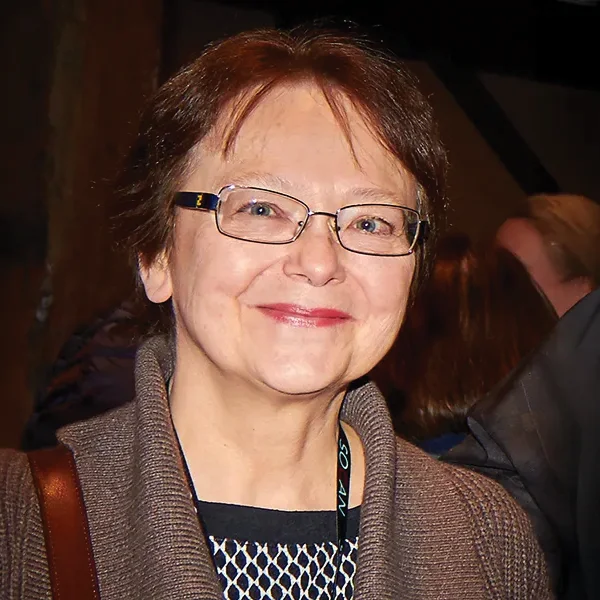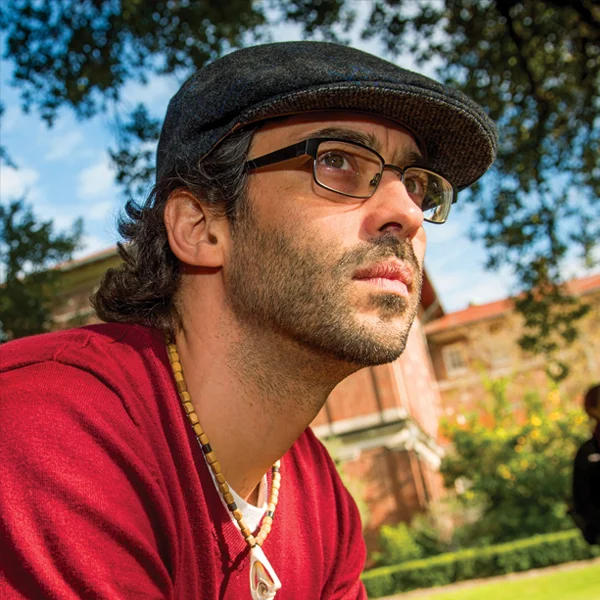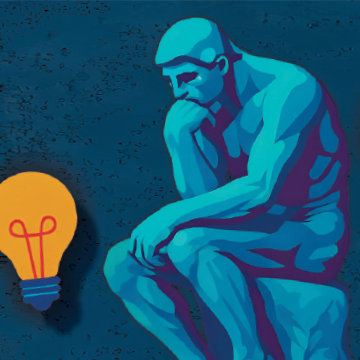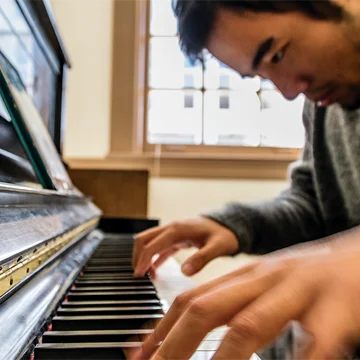Two faculty members on why their discipline holds the keys to life beyond the classroom.
“In choosing a major or discipline, I frequently encourage students to follow their passions and proclivities. But how does each department, in its embracing of differing approaches and methodologies for understanding the world, society, and human meaning making, set up our students for success, however we define it?” - Dean Brian T. Edwards

This is Your Brain on Music
Barbara Jazwinski is a professor of Music and teaches Music Composition and Theory in the Newcomb Department of Music. Her piece, "Beyond the Sunset," was included in the 2025 release of Symphonic Stradivarius.

Sociologists Make Better Humans
Stephen Ostertag is an associate professor of Sociology and the author of Connecting After Chaos: Social Media and the Extended Aftermath of Disaster.
Originally published in the 2025 issue of the School of Liberal Arts Magazine
BJ: Music studies train the brain to process intricate systems, recognize subtle patterns, uncover nuance, and synthesize creativity with logic. In Harmony, independent parts come together to form a unique new entity, with each voice retaining its individuality while contributing to a richer whole. Ear Training hones deep listening and discernment — skills needed for thoughtful leadership, negotiation, and innovation. Music Composition transforms abstract sound into structure, shaping intangible ideas into purposeful design — a transferable strength in fields from Architecture to AI.
SO: Human behavior involves continuously creating order from disorder so we can plan and act with confidence: Those who can do so are most equipped to lead in their personal lives, families, and careers. This is the realm of Sociology, the study of people doing things together. As both an art and science, Sociology is a powerful discipline for assessing, understanding, and anticipating human behavior.
BJ: Participation in music ensembles reinforces a profound balance between individual artistry and collective cohesion. Musicians must simultaneously express originality, technical skill, and interpretative virtuosity while adapting their performance to the composer’s vision and the conductor’s leadership. This duality between independence and cooperation is directly applicable to professional environments that demand teamwork and innovation. Chamber musicians further refine their adaptability, learning to anticipate shifts in tempo, dynamics, or tension through nonverbal communication and deep listening — a skill crucial in fields ranging from negotiation to leadership.
SO: This future will need individuals who can plan, decide, create, negotiate, and navigate among a vast array of people with different perspectives, incentives, frameworks, and pressures. Those who develop insights and expertise harnessed with a Sociology degree and the liberal arts will be most prepared for this global environment.
BJ: Beyond its role as an art form, music serves as a profound catalyst for interdisciplinary exploration and discovery. Many students channel their training into groundbreaking interdisciplinary projects, merging sound with neuroscience, coding, or robotics. Others explore music’s therapeutic potential where research increasingly demonstrates its power to enhance brain plasticity, improve memory, and stimulate neural pathways linked to healing and resilience.
SO: Sociologists are especially equipped to thrive in a future of artificial intelligence, cybersecurity, political and environmental challenges, and the rapid flow of information and people across the globe. Consider the global response to disease. Sociologists approach this problem holistically, integrating the many cultural and structural factors that impede response and containment: the spread of truthful information, rumor and their resonance (and dissonance) with different populations, structural hurdles to distribute and access supplies, practical implementation of containment strategies that do not conflict with cultural practices and beliefs, incentives and norms that do not contradict messaging and solutions. This is sociological thinking and planning in practice.
BJ: In a world of relentless change and increasing complexity, music education stands as a powerful antidote to narrow specialization and rigid thinking. Often misunderstood as “impractical,” Music Studies cultivate the very skills most essential for thriving in unpredictable environments: versatility, critical thinking, and ability to navigate ambiguity.
SO: Sociologists’ skills are valued in government, business, healthcare, urban planning, international relations, and beyond. They enjoy a variety of rewarding career options and can pivot later in life, should they want or need to. Flexible enough to adapt to the changing conditions around them, but with a core set of skills that ground how they approach, move, and grow in the world, Sociology is the discipline of the 21st century.




